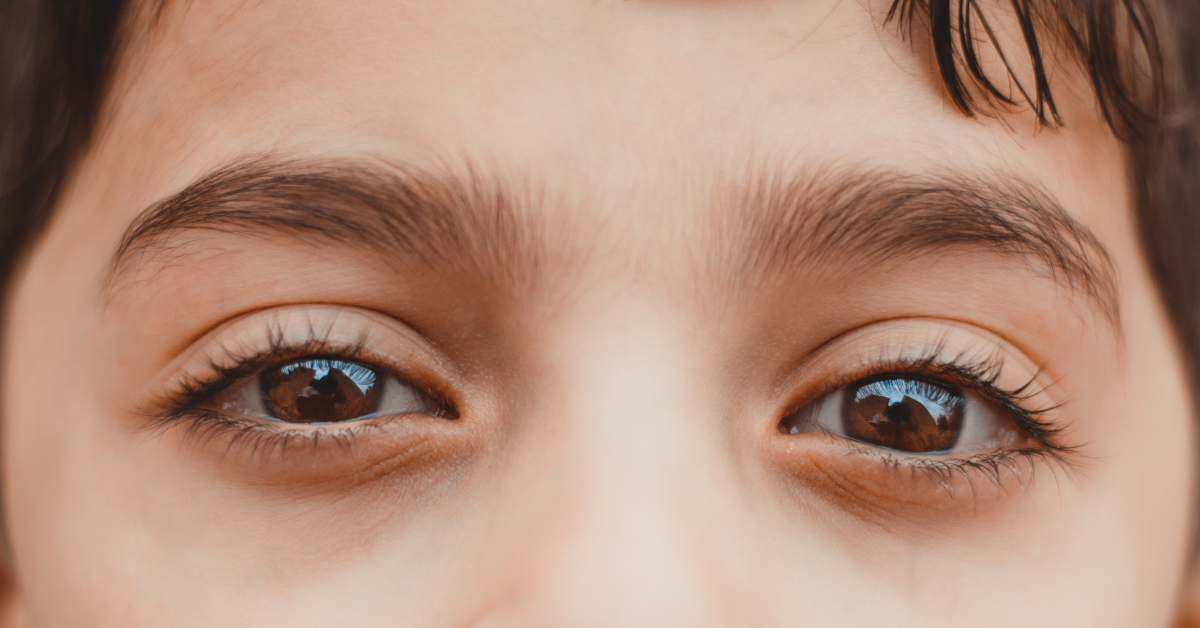
The Clarity Chronicles: How to Keep Your Child’s Eyes Healthy and Sharp

*Collaborative Post
As a caring parent, it’s natural to want the very best for your children.
Parents usually prioritise their children’s physical health, implementing healthy diets and physical activity. But what they should not overlook is the well-being of their children’s eyes.
In this article, we will:
- explore tips for keeping your child’s eyes healthy and sharp
- discuss common eye issues and retina problems
- provide age-appropriate eye care recommendations
- highlight the role of nutrition in eye health
Eye Care Tips for Parents and Children
One of the best ways to keep your child’s eyes healthy is to make sure they have proper lighting.
When children do homework or read, ensure the room is well-lit and the desk is at the right height. Those changes will prevent eye strain.
With the rise of digital devices, screen time management has become important for children’s eye health. Blue light emitted by electronic devices can disrupt sleep patterns.
Encourage your child to take breaks every 20 minutes and focus on something in the distance.
Outdoor play and exposure to natural light are beneficial to eye health. Sunlight helps to increase vitamin D production, which is essential for healthy eyesight.
Motivate your child to spend at least 30 minutes outdoors every day.
Common Eye Issues and Retinal Problems
Most children will experience common eye problems, such as nearsightedness, farsightedness and astigmatism.
Nearsightedness
Sometimes children have trouble seeing things far away. It’s most common when they read words on a whiteboard at school.
This is called nearsightedness. Their eyes are better at seeing things close to them, but things in the distance can look blurry.
Farsightedness
On the other hand, some children have difficulty seeing things close up. Reading a book or playing with small toys, in this case, can be hard.
This is farsightedness – eyes can focus on things that are far away, but things up close may seem fuzzy.
Astigmatism
Astigmatism occurs when a child’s eyes have a different shape than usual. The shape usually reminds the almond shape, and it’s easy to recognize.
It can make things look blurry or twisted, like when a picture is distorted. But luckily, glasses or contact lenses can help in the case of all three eye problems.
Retina problems
Retina problems include retinal detachment and macular degeneration. They can be more severe and need prompt treatment.
Symptoms of retina problems include
- blurred vision
- flashes of light
- sudden loss of vision
Detecting retina problems early is essential for a few key reasons.
By identifying these problems early, you can take action right away to prevent them from getting worse.
If not detected on time, they can get worse very quickly and cause permanent damage to your child’s vision.
Age-Appropriate Eye Care Recommendations
Your children should have eye check-ups when:
- at six months old
- at three years old
- before starting school
After that, regular exams should occur every two years unless the eye specialist recommends otherwise. Adults should also have their eyes checked every two years.
When it comes to eyewear, consider these tips while choosing glasses for your child:
- Consult with their eye specialist for the best guidance.
- Choose a proper fit for comfort and good vision correction.
- Select durable frames, especially for children.
- Consider frame styles that match your child’s preferences.
- Look for lens materials and coatings that meet the child’s needs.
- Opt for adjustability features for a secure fit.
Make sure to choose glasses with lenses that provide 100% UV protection. Remind them to wear them even on cloudy days.
Nutrition for Eye Health
Eating a balanced diet can help protect your vision and keep your eyes healthy.
Nutrients such as vitamins A, C, and E help maintain good eye health. Vitamin A stimulates growth and development in the eyes.
Vitamin C helps blood flow to the eyes and protects them from oxidative damage. Vitamin E helps prevent age-related macular degeneration.
Omega-3 fatty acids found in fish such as salmon and tuna can also improve eye health.
Incorporate leafy greens, sweet potatoes, and citrus fruits into your diet. Nuts and almonds are great snacks that also help improve vision.
Enjoying nutrient-rich smoothies and salads is an easy and delicious way to get more eye-friendly foods into your diet.
Conclusion
By implementing a few simple tips, you can help ensure that your child’s eyes remain healthy and sharp.
Make sure they get regular eye exams, especially if they wear glasses or contacts.
Encourage them to take frequent breaks from the screen.
Ensure they are eating a balanced diet with plenty of fruits and vegetables. Educate them about sunglasses’ importance in protecting their eyes from UV rays.
Taking proactive steps helps protect your child’s eyes and health in the long run.
Remember that prevention is the key to eye health, so prioritise it as part of a balanced lifestyle.
*This is a collaborative post. For further information please refer to my disclosure page.




